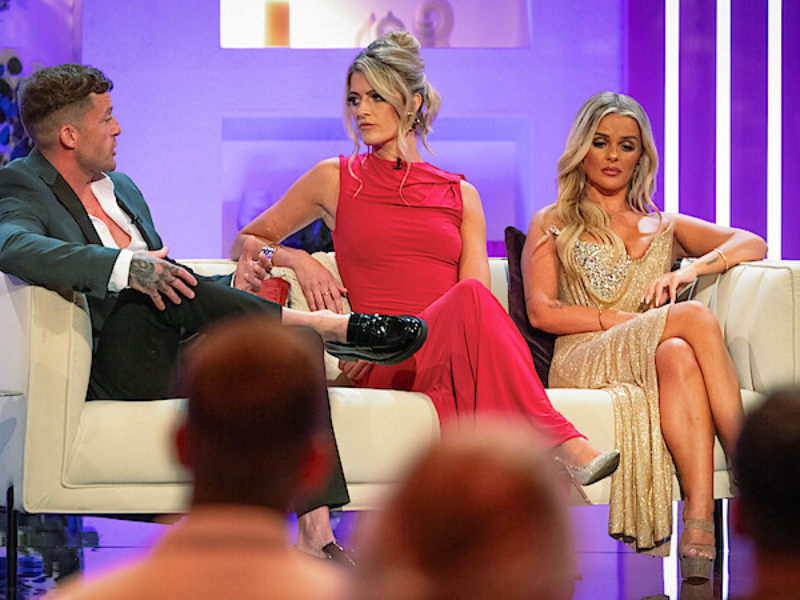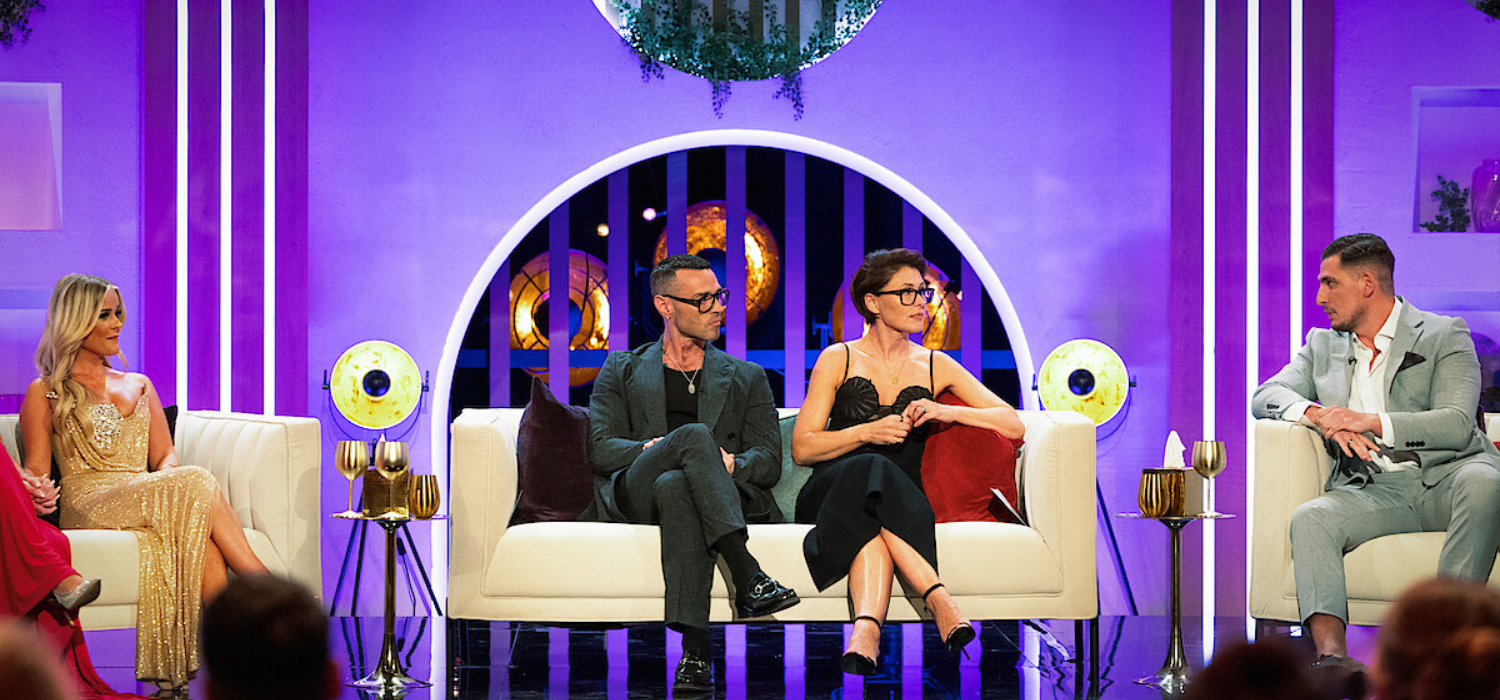Introduction: The Power of Talk Shows
Talk shows occupy a unique space in the entertainment world. Unlike scripted dramas or blockbuster films, they thrive on conversation, spontaneity, and personality. They act as a mirror to society, offering insight into cultural shifts, political landscapes, and celebrity personas. From lighthearted banter to thought-provoking discussions, talk shows weave together performance and authenticity.
The journey of talk shows spans decades, reflecting both technological innovation and societal change. What began as intimate conversations broadcast to small audiences has grown into a global phenomenon with millions tuning in. Their power lies not in grand narratives, but in the raw, unscripted exchanges between host and guest.
This blog explores that journey—how talk shows evolved, the magic of legendary hosts, the charm of unforgettable guests, and the impact these programs continue to make worldwide.
The Birth of the Talk Show Format
Radio Roots and Early Television
The origins of the talk show can be traced back to radio. In the early 20th century, radio programs often featured hosts interviewing notable figures, blending information with entertainment. These early broadcasts established the foundation of casual, conversational engagement.
With the rise of television in the mid-20th century, the format transformed. Television offered not only the intimacy of voice but also the power of visual connection. Audiences could now see expressions, gestures, and the atmosphere of the studio. The first television talk shows were modest in scale, but they revolutionized audience engagement.
The First Pioneers
Programs like The Tonight Show, launched in 1954, cemented the genre’s place in American entertainment. Hosted initially by Steve Allen, the show introduced a mix of interviews, comedy, and music that became the template for late-night television. Across the Atlantic, similar formats began emerging in the UK, with hosts blending wit and charm in distinctly British ways.
The talk show was born as a hybrid—part theater, part journalism, part comedy. It was a stage where politicians and pop stars shared equal footing, and where audiences tuned in not just for the news, but for the personality of the host.

Hosts as Cultural Icons
The Importance of the Host
At the heart of every successful talk show is its host. More than just an interviewer, the host serves as a guide, a comedian, and often a confidant. Their tone, humor, and empathy shape the entire viewing experience. Viewers tune in not only for the guests but also for the host’s ability to create memorable moments.
American Pioneers: Carson, Letterman, and Oprah
Johnny Carson, who hosted The Tonight Show for three decades, epitomized the role of the talk-show host. His wit, timing, and charisma turned his program into an American institution. Carson’s ability to balance humor with sincerity set the gold standard.
David Letterman brought a more ironic, sometimes edgy style. His humor pushed boundaries, making his late-night program appeal to younger audiences. Meanwhile, Oprah Winfrey transformed the daytime talk show into a platform for empathy, self-improvement, and cultural dialogue. Her impact extended far beyond entertainment, reshaping conversations about race, gender, and personal growth.
British Legends: Parky, Norton, and Ross
In the UK, Michael Parkinson, known simply as Parky, became one of the most respected hosts in television history. His interviews prioritized depth and authenticity, allowing guests to reveal their humanity. Unlike some American counterparts, his focus was on conversation rather than comedy skits.
Later, Graham Norton redefined the format with a playful, irreverent style. His show introduced the now-iconic “red sofa,” where multiple celebrities interacted simultaneously, sparking unscripted magic. Jonathan Ross added another layer with his energetic personality and sharp humor. These hosts each reflected the British balance between charm, wit, and candidness.
The Guests: Stars in Conversation
Celebrities as Storytellers
Guests are the lifeblood of talk shows. Whether actors, musicians, athletes, or public figures, they bring stories that resonate with audiences. Talk shows provide a rare opportunity to see celebrities unscripted—laughing, stumbling over words, or revealing vulnerabilities.
An actor promoting a film might share anecdotes from the set; a musician might perform live; a politician might defend policies in real time. These appearances humanize public figures, reminding audiences that fame does not erase personality or imperfection.
Memorable Appearances
Over the decades, certain appearances have become legendary. Think of Robin Williams on Letterman, unleashing a whirlwind of improvisational comedy, or Adele on The Graham Norton Show, blending self-deprecating humor with raw honesty.
In daytime television, Oprah’s interview with Tom Cruise—where he infamously jumped on the couch—became cultural shorthand for celebrity eccentricity. More recently, Meghan Markle and Prince Harry’s sit-down with Oprah made headlines around the globe, blending entertainment with social commentary.

Formats and Innovation in Talk Shows
Late Night vs Daytime
Late-night talk shows often prioritize comedy, monologues, and celebrity interviews. They provide lighthearted relief at the end of the day. Daytime talk shows, by contrast, lean toward relatability, lifestyle discussions, and emotional resonance. This divide reflects the versatility of the genre.
Interactive Elements
From comedy sketches to audience participation, talk shows continually innovate. Jimmy Fallon revitalized The Tonight Show with viral-friendly games and musical impressions. Ellen DeGeneres built her daytime show around dancing, pranks, and surprise giveaways.
In the UK, Graham Norton’s playful audience segments—like reading aloud embarrassing stories submitted by fans—added another dimension. These innovations ensure that talk shows remain fresh and relevant.
The Role of Music
Live music has always been a staple of talk shows. From The Beatles performing on The Ed Sullivan Show to contemporary artists launching careers through late-night appearances, these platforms shape cultural history. For many artists, performing on a talk show signals mainstream recognition.
Talk Shows as Cultural Mirrors
Reflecting Society
Talk shows do more than entertain; they reflect the times. In moments of crisis, they become platforms for national reflection. After the September 11 attacks, late-night hosts shifted their tone, offering comfort and solidarity. During the COVID-19 pandemic, hosts broadcast from their homes, demonstrating shared vulnerability.
Shaping Public Opinion
The genre has also shaped opinions. Oprah’s book club turned obscure novels into bestsellers. Stephen Colbert’s satirical commentary influenced political discourse. In Britain, Parkinson’s interviews often introduced audiences to cultural figures they may not have otherwise encountered.
Talk shows remind us that conversation itself is powerful—capable of uniting communities, sparking debates, and creating moments that live forever in public memory.
Global Expansion and Influence
Exporting the Format
The talk-show format is not confined to the United States or the United Kingdom. Around the world, local adaptations have flourished. In India, programs like Koffee with Karan blend celebrity gossip with candid revelations. In South Korea, talk shows often merge with variety formats, creating hybrid entertainment.
These adaptations highlight the universal appeal of talk shows: the joy of watching people talk, laugh, and reveal themselves. While humor, style, and production values differ, the essence of connection remains.
Cross-Cultural Impact
Global streaming platforms have amplified this reach. Clips from The Graham Norton Show regularly go viral on YouTube, introducing his irreverent style to audiences far beyond the UK. Similarly, James Corden’s Carpool Karaoke transcended the show itself, becoming a global phenomenon.
Talk shows now serve as both national staples and global exports—proof of their adaptability and universal charm.
Conclusion : The Foundation of a Journey
The first part of this exploration highlights the origins, hosts, formats, and cultural significance of talk shows. From their early radio days to their global reach, talk shows have always been about more than entertainment—they are about connection.
Audiences tune in for laughter, insight, and the thrill of unscripted moments. Whether through the gravitas of Michael Parkinson or the flamboyance of Graham Norton, talk shows provide a window into human stories.
Talk Shows as a Global Stage for British Talent
For many UK actors and actresses, appearing on a major talk show is about more than a publicity stop—it’s a chance to connect with a worldwide audience. Programs like The Graham Norton Show in the UK, The Tonight Show in the US, or The Late Late Show with James Corden have become cultural gateways. British stars use these platforms not only to promote films or series but also to showcase their charm, humor, and authenticity. This has helped actors like Daniel Radcliffe, Emily Blunt, and Dev Patel expand their international fanbase.
What makes these appearances so captivating is the blend of humor, spontaneity, and relatability. Unlike scripted roles, talk shows strip away the character and spotlight the personality. British actors often shine here, bringing wit and humility that resonate deeply with audiences across the globe.
British Wit on the Couch
A defining feature of UK actors in talk shows is their quick-witted humor. Whether it’s Hugh Grant delivering a self-deprecating joke, or Emma Thompson delighting with her storytelling, the art of witty conversation is almost second nature. This talent isn’t accidental—it’s rooted in the UK’s strong tradition of theater, literature, and comedy, which trains performers to think on their feet.
Shows thrive on these moments. For example, Benedict Cumberbatch’s hilarious impersonations, or James McAvoy’s candid anecdotes about his Scottish upbringing, often become viral clips shared worldwide. These unscripted bursts of personality highlight the depth behind their polished performances on stage and screen.

Memorable Cross-Atlantic Moments
While UK talk shows have their own distinctive flair, British stars often make headlines when they appear on American talk shows. The contrast between British humor and the American style of hosting creates a fascinating dynamic. Stars like Idris Elba and Olivia Colman bring their signature charm to programs like The Tonight Show Starring Jimmy Fallon or The Ellen DeGeneres Show, and the cultural exchange delights audiences on both sides of the Atlantic.
For instance, when Olivia Colman appeared on The Late Show with Stephen Colbert, her warmth and quirky humor instantly won the audience over, proving why she is adored internationally. These appearances are not only promotional opportunities—they help British actors solidify their status as global household names.
Talk Shows as Cultural Connectors
Talk shows also act as cultural connectors, bridging the gap between British and global entertainment. They give international audiences insight into the personalities behind iconic roles while highlighting the cultural differences in humor, storytelling, and lifestyle. A casual remark from a UK star about life in London, or a playful story about British traditions, often becomes a topic of fascination.
This cultural sharing enriches the entertainment industry. It turns British actors into ambassadors of their homeland, subtly weaving elements of UK culture into conversations watched by millions.
Emma Thompson: The Storytelling Queen
Emma Thompson is widely celebrated not only for her award-winning performances but also for her talk show appearances, which are nothing short of legendary. Known for her sharp wit and animated storytelling, Thompson turns every interview into an unforgettable performance. Whether she’s recounting her adventures at Hollywood parties, or reflecting on her early stage days in London, her ability to keep audiences laughing while sharing genuine moments makes her one of the most beloved UK guests on any sofa.
Her appearances often reveal her down-to-earth nature—despite her Oscar-winning status. Thompson is refreshingly candid about aging in Hollywood, her feminist views, and the joys of embarrassing her children. On talk shows like The Graham Norton Show or The Tonight Show, she shines as someone who can both poke fun at herself and drop heartfelt wisdom in the same breath.
Benedict Cumberbatch: The Master of Impressions
Benedict Cumberbatch’s serious roles—Sherlock, Doctor Strange, The Imitation Game—contrast sharply with his light-hearted and playful side on talk shows. Fans adore his uncanny impressions, whether it’s mimicking Alan Rickman, Chewbacca, or even a convincing otter face (a joke that took over the internet).
Cumberbatch’s appearances highlight a different dimension of his talent: spontaneity. Talk shows allow him to show audiences that beneath the intense, intellectual characters he often plays, he is charming, approachable, and downright hilarious. These moments have gone viral countless times, introducing him to fans who may never have seen his stage or TV work.
Idris Elba: Cool, Charismatic, and Unfiltered
Idris Elba brings an undeniable charisma to every sofa he graces. With his deep voice, magnetic presence, and sharp humor, Elba embodies effortless cool. Yet, his talk show appearances also reveal his playful, down-to-earth side. From recounting awkward auditions to joining in on goofy skits, Elba’s willingness to laugh at himself makes him a talk show favorite.
One standout moment was his appearance on The Ellen DeGeneres Show, where he hilariously attempted to master tongue twisters. Another was on The Graham Norton Show, where his stories about DJ-ing and nearly missing out on major roles had the audience in stitches. These glimpses remind fans that behind the suave Hollywood star is a grounded Londoner with a wicked sense of humor.


